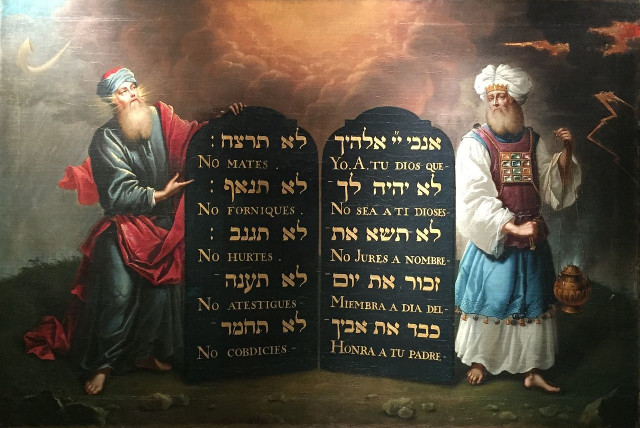Shavuot: The beauty of the Jewish Torah, agricultural holiday

There are several underlying principles to Shavuot, from agriculture to the Torah.
The festival of Shavuot, which falls on June 12, is also known as the Feast of Weeks and the Festival of the Covenant. It is probably the most popular Jewish festival, particularly in Israel. Exactly seven weeks after Passover, Shavuot marks the beginning of the spring wheat harvest and the end of the barley harvest, so it has yet another name: Hag Habikurim, the Festival of the First Fruits.
There are several underlying principles to Shavuot. The earth depends for its fertility not only on the labors of men (and women) but also on the cooperation of God. He supplies the rain, dew, sun, and wind, making Him a full partner. Thus the presentation of the first fruits becomes a payment of the dividend on His investment.
If we translate that into broader terms, it means that the relationship between God and man is not one of master and servant but of mutually dependent partners in the joint enterprise of continuous creation.
The many strands of Shavuot
The agricultural theme is only one strand in the celebration of Shavuot. The scriptural narrative states clearly (Exodus 19:1) that the children of Israel reached Mount Sinai in the third month after their departure from Egypt, which is when they received the Ten Commandments. So Shavuot is also the birthday of Israel, the anniversary of the day on which the covenant was concluded between God and His people. So Shavuot is also known as “the season of the giving of our law.”
According to tradition, we all stood at Sinai and received the Torah directly. Out of this arose the custom, known as tikkun leil Shavuot, to stay up the entire night studying and discussing Torah. Many Jews study a small section from every book of the entire body of Jewish writings.
I am always fascinated by the belief that the heavens open up at midnight on Shavuot, making it easier for our prayers to ascend directly to our creator. Whether taken literally or not, there is great beauty in staying up all night studying, and then greeting the dawn and receiving the Torah anew.
In Jerusalem, many people finish their night of study by walking, or dancing, to the Western Wall, praying there as the sun rises and bathes the somber gray stones with rays of golden light.
All Jewish festivals seem to have a gastronomic tie-in. With Shavuot, it is dairy products because after Sinai, the Jews did not want to spend a lot of time preparing meat, which involved slaughtering and kashering, and also because the Torah is compared to milk and honey.
Hence, we can indulge in luscious cheesecakes. We decorate our homes and synagogues with greenery as a reminder that on Shavuot the world is judged through the fruit of the trees, a judgment demonstrated by the richness or paucity of the harvest.
The Book of Ruth is read on Shavuot, recording events that happened at the time of Israel’s grain harvest. Ruth, the Moabite, clung to the Jewish people and their faith. From her was descended King David who, according to the Talmud, was born and died on Shavuot.
In Israel, the agricultural theme is most meaningful in the kibbutzim, moshavim, or small farms, where people experience the special joy of harvesting crops they themselves planted. Even in non-religious kibbutzim there are decorated tractors, and on stage men and women working in the vineyard, orchard, cowshed or chicken run, tell of their work and their plans. Their ties to the land are expressed in readings, song, and dance.
The new customs that Israelis introduced to Shavuot have brought us full circle. Again we are celebrating it as an agricultural festival in which all Israelis can participate. With it comes the realization that the giving of the Torah at Mount Sinai marked Israel’s entry into national maturity. By accepting the law of justice and morality and its commandments, we have been promised eternal existence. May we celebrate it in peace!■
The writer is the author of 14 books. She can be contacted at: dwaysman@gmail.com
Jerusalem Post Store
`; document.getElementById("linkPremium").innerHTML = cont; var divWithLink = document.getElementById("premium-link"); if (divWithLink !== null && divWithLink !== 'undefined') { divWithLink.style.border = "solid 1px #cb0f3e"; divWithLink.style.textAlign = "center"; divWithLink.style.marginBottom = "15px"; divWithLink.style.marginTop = "15px"; divWithLink.style.width = "100%"; divWithLink.style.backgroundColor = "#122952"; divWithLink.style.color = "#ffffff"; divWithLink.style.lineHeight = "1.5"; } } (function (v, i) { });

